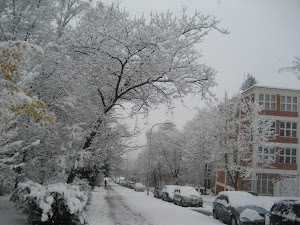by Rebecca Ruiz
World explorers like Marco Polo and Christopher Columbus would likely balk at the modern luxuries of adventure travel. Treks through Mongolia and sea voyages across the Atlantic are now completed in mere days or weeks, and little thought is given to historic variables like invaders or starvation.
Yet, these trips still offer modern travelers a sense of accomplishment and discovery.
 World explorers like Marco Polo and Christopher Columbus would likely balk at the modern luxuries of adventure travel. Treks through Mongolia and sea voyages across the Atlantic are now completed in mere days or weeks, and little thought is given to historic variables like invaders or starvation.
World explorers like Marco Polo and Christopher Columbus would likely balk at the modern luxuries of adventure travel. Treks through Mongolia and sea voyages across the Atlantic are now completed in mere days or weeks, and little thought is given to historic variables like invaders or starvation.
Yet, these trips still offer modern travelers a sense of accomplishment and discovery.
"It's one of those extreme places that's so barely touched by man," he says, "which is getting harder and harder to find."

Adventure Travel 101
Many adventure travel operators stress that their trips do not include bungee jumping or another type of extreme sport, which is often the common perception.
"Adventure is a big word," says George Deeb, CEO and founder of iExplore, an online adventure travel tour company. "It's different from one person to the next."
Deeb's customers are most interested in vacations that include physical and experiential components like hiking and biking or culinary tours and expedition cruising.
A feeling of immersion in the local culture or landscape is essential, he says. IExplore trips, for example, include an on-request lunch with former first lady Jehan el-Sadat while traveling in Egypt, and time spent with the Masai tribe of Kenya. Destinations like Venezuela, Jordan and Morocco have also become more common in recent years, whereas European locations have declined in popularity.
But it's often difficult for travelers to make time for such demanding trips. An October online survey of 2,027 people by Deloitte, an international consulting company, found that 49% of respondents wanted to take an adventure travel trip. The majority of those who replied affirmatively were between 18 and 29 and 45 and 60, a trend that points to the difficulty of scheduling time-intensive vacations when work or family obligations might prevent doing so.
If money were no object, where would you travel? Weigh in. Add your thoughts in the Reader Comments section below.
"In my mind," says Adam Weissenberg, Deloitte's vice chairman and U.S. tourism, hospitality and leisure leader, "the definition [of adventure travel] is doing something that is an experience as opposed to doing something that's to unwind, relax or visit a relative."
Life-Changing Trips
For Eliades, long trips in far-off places have been easier to arrange since his job as an epidemiologist for the Centers for Disease Control required stints of global travel. Prior to visiting Antarctica through iExplore, Eliades had already crisscrossed the globe to climb Africa's Mount Kilimanjaro, hike through Nepal and explore Vietnam.
"I get so much out of the trips," Eliades says. His memorable experiences include awakening in a Nepalese village to a 27,000-foot mountain that was not visible when he arrived the night before. "It was like something I'd never seen before."
With numerous online adventure travel tour operators available, coordinating a trip like Eliades' can be quite simple. Geographic Expeditions offers both private and group tours of destinations like Bhutan, Mongolia and Alaska. In Mongolia, travelers ride camels while exploring the Gobi Desert.
Linblad Expeditions styles its trips to places like the Atlantic Ocean and Antarctica as learning experiences. Environmental or cultural experts teach travelers about ecology and history and high-tech equipment like remote underwater vehicles, hydra-cameras and phones are utilized to fully capture the surroundings.
Sven-Olof Linblad, president of the company, says that the educational focus is designed to inspire travelers to become advocates of cultural heritage and natural beauty. He also notes that curiosity about certain destinations often correlates with news about climate change; in recent years, the number of people interested in the polar regions has doubled or tripled.
"Most people live hectic lives and they become disconnected with the natural world," says Linblad. "It's incredibly powerful to be out in the middle of nowhere where there are no buildings, nothing but raw nature."

No comments:
Post a Comment